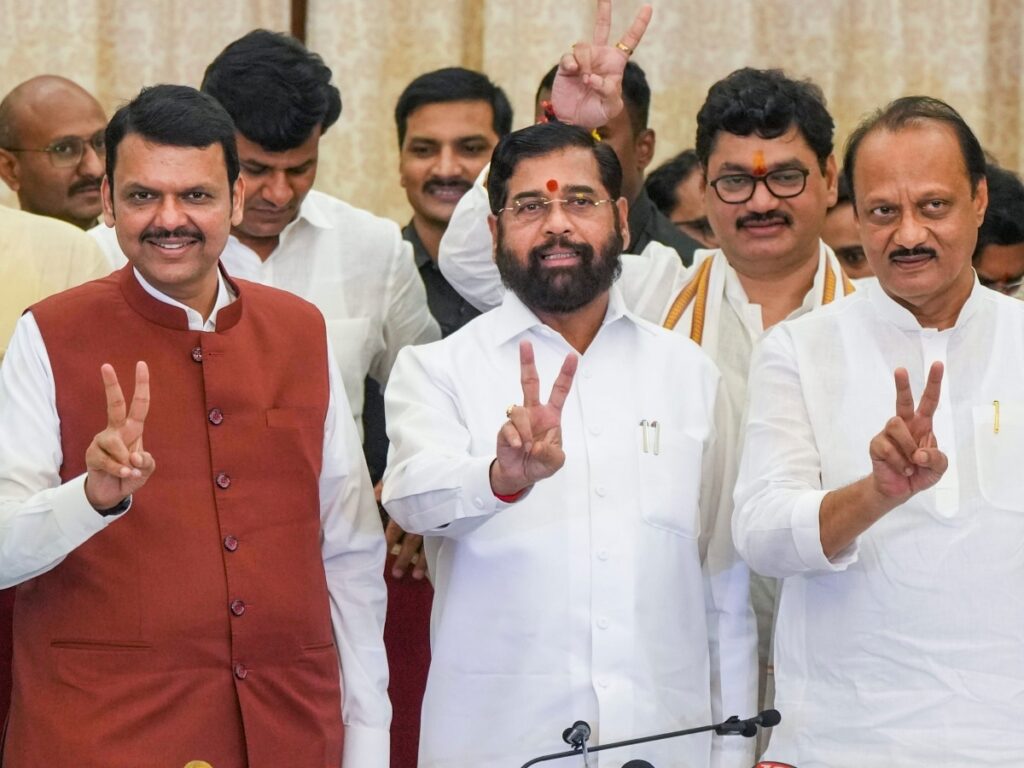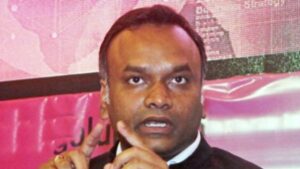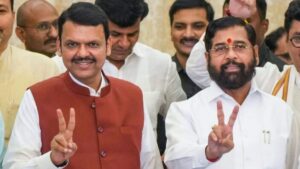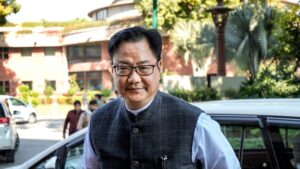Mahayuti Cabinet Has Large Chunk Of Political Heirs; Dynastic Politics Or Not, Asks Opposition

Last Updated:
The BJP has repeatedly condemned what it calls “dynastic politics”, but the opposition has pointed out that, when it comes to Maharashtra, there is a stark contradiction between the party’s rhetoric and reality
The Mahayuti’s cabinet composition underscores the enduring influence of family-based politics in Maharashtra. (Image: PTI/File)
Indranil Naik, Akash Phundkar, Yogesh Kadam, Nitesh Rane, Shivendra Singh, Radhakrishna Vikhe-Patil – what do these leaders in Maharashtra’s Mahayuti cabinet have in common?
They are all political heirs from significant families, making up a chunk of legacy leaders showing that practical politics often trumps ideological commitments. The BJP has repeatedly condemned what it calls “dynastic politics” at a national level, but opposition parties in Maharashtra have pointed out that, when it comes to the Mahayuti alliance, there is a stark contradiction between the party’s rhetoric and reality.
The BJP, however, claimed that the opposition has failed to understand the meaning of “dynastic politics”. It said in this party, even if leaders have a political background, they have to first prove themselves as workers on the ground rather than power simply changing hands within a family like it is in the case of the Gandhis.
“The opposition has failed to understand the meaning of dynastic politics. In the case of the Congress, look at how after Indira Gandhi, her son Rajiv Gandhi got power. After him, Sonia Gandhi got power in the party, and then Rahul Gandhi came after her. But, in the case of the BJP, though our leaders have political backgrounds, they first work for the party as common party workers. That is why you will see a common party worker becoming the national president of our party. Thus, there is a difference between the Congress and BJP,” Maharashtra BJP chief spokesperson Keshav Upadhye told News18.
Let’s take a look at the state cabinet composition, which has the grandson of former Maharashtra chief minister Sudhakar Naik and Manohar Naik’s son Indranil Naik; BJP leader Pandurang Phundkar’s son, Akash Phundkar; Shiv Sena leader and former cabinet minister Ramdas Kadam’s son, Yogesh Kadam; and former CM and Union minister Narayan Rane’s son, Nitesh Rane; Abhay Singh Raje’s son, Shivendra Singh; and former Union minister Balasaheb Vikhe-Patil’s son, Radhakrishna Vikhe-Patil.
Not only this cabinet, but there are similar examples from previous Mahayuti cabinets as well. The late Gopinath Munde’s family is a strong instance as both his daughter Pankaja Munde and nephew Dhananjay Munde, have held cabinet posts at the same time.
“I don’t consider the BJP a party anymore. Most of their leaders have been poached from the Congress, NCP, and Shiv Sena. If you see the recently inducted cabinet, many ministers are either sons or daughters of prominent political leaders, or grandsons or granddaughters of politicians. How can they point fingers at other parties on the issue of dynastic politics? This BJP doesn’t walk the talk; hence, they poach politicians from other parties to sustain themselves,” Rajya Sabha MP Sanjay Raut told News18.
Congress MP and Mumbai unit chief Varsha Gaikwad also slammed the BJP for pointing fingers at the Congress over this issue. Senior NCP leader Clyde Crasto echoed her sentiments saying it was, in fact, the BJP that was a “factory of dynastic politics”.
“See how many cabinet ministers and even MLAs the BJP has from political families. Yet they always point fingers at us (Congress). In Parliament, too, during discussions on the Constitution, their leaders spoke about dynastic politics and targeted us. But now I want to ask them: what is happening in your own party? Why are you doing injustice to common MLAs who don’t have a political background?” Gaikwad said.
Crasto, meanwhile, added: “The BJP is the factory of dynastic politics. To hide your own flaws, they always make a loud noise and point fingers at others. But, once again, they are exposed as many of their cabinet ministers come from political families.”
In his most recent Parliament speech, Prime Minister Narendra Modi once again attacked the Congress and Nehru-Gandhi family for propagating dynastic politics. Hence, the opposition parties now have a bone to pick. Not only the Congress, the BJP has also targeted the Sharad Pawar-led NCP and Uddhav Thackeray’s Shiv Sena of turning governance into a family affair.
WHY IS THIS RAMPANT IN MAHARASHTRA POLITICS?
According to experts, as the BJP continues to target the Gandhis over the issue of dynastic politics, its own image may get diluted if it fails to stem the same from happening in its own ranks. They said when it comes to regional politics, there are several reasons behind the reliance on the dynasty factor.
Political families bring with them an established support base, ensuring a ready-made vote bank and smoother power transition, experts said. In a state as politically diverse, where caste dynamics and local loyalties play a critical role, promoting political heirs becomes a pragmatic choice for parties, they said.
They further said this can also be seen as a strategy by the BJP to counter the dominant dynasty-based political narrative set by the Congress, NCP, and Shiv Sena for decades. Hence, the Mahayuti’s composition underscores the enduring influence of family-based politics in Maharashtra, they added.



